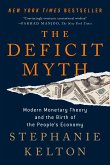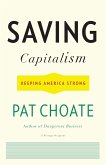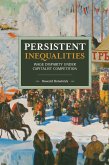Coming from a Harvard Business School professor, with an Establishment name and an Eisenhower-administration record, Lodge's 1975 The New American Ideology was slightly bold and slightly prescient: a call to abandon Lockean individualism for Japanese (etc.) "communitarianism"; to embrace government planning, the community-interest, new types of labor-management relations. Updated today, with due reference to Abernathy and Hayes, Reich and Rohatyn, such ideas sound - and are - old hat. What is newish, and sharpish, is Lodge's running assessment of the Reagan administration. Apropos of "the American disease" (e.g., the difficult transition from individualism to communitarianism): "There was the inarticulate but wistful hope that Ronald Reagan would take us back to a lost state of grace." On chronic, continuing governmental ambivalence: "Obsessed with individualism. . . the authors of the [1982] Economic Report were blind to the communitarian activities which the government had already undertaken, and to those which it would need to undertake in the near future." One point, irrespective of Reagan, is made repeatedly - but also advisedly: "Where questions of community need - or the national interest - arise, government must (and eventually will) intervene. It will do so whether it has the competence or not, because it, and it alone, has the authority." (The lesser, air-pawing side of Lodge: "if business is to help the underciass regain full membership in American society, it must work with other groups to reestablish the ties between the residents of disintegrated communities and the mainstream society.") In conclusion, there are some suggested remedies - for a much-expanded office of United States Trade Representative (the area of Lodge's governmental expertise), for reform of corporate governance (a business-school specialty). Bland and flaccid but not empty. (Kirkus Reviews)
Hinweis: Dieser Artikel kann nur an eine deutsche Lieferadresse ausgeliefert werden.
Hinweis: Dieser Artikel kann nur an eine deutsche Lieferadresse ausgeliefert werden.








